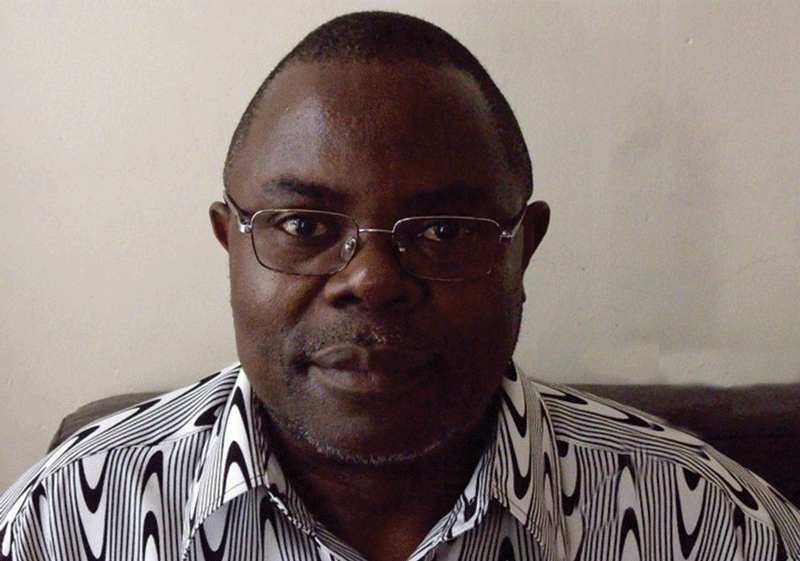
A NUMBER of top Zanu PF officials including finance secretary Patrick Chinamasa and spokesperson Christopher Mutsvangwa have let it be known that the ruling party and military were inseparable. At the same time, they also acknowledge that Zanu PF’s continued political survival has been dependent on the military because the two were tied together by the liberation struggle.
The question is: Is the military’s involvement in politics compatible with democracy, economic development and human rights?
The purpose of this article is to analyse and discuss the issues uttered by the Zanu PF leaders and to assess the extent to which these utterances impact on certain inalienable rights of citizens. It must be recognised that Zimbabwe is facing peculiar problems of democratic governance. As such, the military’s involvement in active party politics as well as the assault on civil society organisations has far-reaching implications for the future development prospects of Zimbabwe.
To understand the role of the military in the Zimbabwe politics, it is necessary to explore the historical relationship between the ruling party and its military wings. It is self-evident that Zanla and Zipra played a major role in liberating Zimbabwe. Chinamasa and Mutsvangwa are right in asserting that there is a strong bond between the military and Zanu PF. In other words, without this relationship, Zanu PF would not be ruling Zimbabwe.
Therefore, is this linkage a trend in the right direction?
It can be argued that the continued relationship between military and Zanu PF is not politically, economically and democratically healthy for Zimbabwe.
It has a negative impact on promoting democratic governance. The relationship between the military and Zanu PF made it clear that (then Zanu PF presidential candidate) Robert Mugabe must continue to govern Zimbabwe.
The second Executive coup took place in November 2017 when the same military removed Mugabe and put in his place the current President Emmerson Mnangagwa. People took to the streets hoping that the new regime was going to introduce governance reforms. Yet to date, the current government is unwilling to embark on meaningful political and electoral reforms. There is still widespread disillusionment with political autocracy in Zimbabwe today and this is characterised by the alienation of Zimbabwe’s ruling political leaders from their followers.
- Mnangagwa marches expose Zanu PF fights
- Zanu PF bigwigs face axe in purge
- Zanu PF splurges cash on delegates
- Mnangagwa marches expose Zanu PF fights
Keep Reading
It is important when examining the linkage between the military and Zanu PF to remember that the November 2017 coup was staged by military officers who continued to perpetuate Zanu PF rule. Here-in lies the umbilical connection between Zanu PF and the military. Therefore, when Mutsvangwa maintained that the military was part of Zanu PF, he was stating the obvious. In other words, without the support of the military, Zanu PF is nothing. The party is dependent on the military for its survival. Its continued existence is from the barrel of the gun.
The burning question is: Is it not embarrassing for a political party to be dependent on the country’s military for its own survival? A political party is supposed to be a keystone of democratic governance in that it can act as a galvanising force for positive economic and social change. However, involving a partisan army into politics gives rise to authoritarianism. The role of the State and the objectives of State policy are then identified with the ruling elite who include the military.
From the foregoing, it can be stablished that the current government is failing to meet the challenges of the times and that authoritarianism is engendering political unaccountability. Involving the military in politics means that the ruling party can do what it pleases without paying systematic attention to all norms of democratic governance.
Threats, intimidation and attacks against political opponents are carried out with impunity because of the involvement of the military in politics. This has resulted in a climate of injustice and insecurity for those exercising their right to political freedom.
Zimbabwe is in crisis and the country is facing problems of human deprivation and economic stagnation and there is a failure to protect the livelihoods of the people. Therefore, the country is finding itself in situations of marked internal instability that has resulted in social and economic dislocation. It stands to reason that involving the military in politics will exacerbate the situation. The military needs to play its professional role in looking after the security interests of the country and its people.
As a final consideration, it must be recognised that the integrity of Zanu PF will continue to be called into question if the political party continues to involve the military in its internal politics. What is needed in Zimbabwe is a politically enabling environment for democracy to flourish without military interference. There is a stronger need for effective, responsive and accountable management of public affairs. This can only be achieved if the barrels of the gun are kept in the barracks.
- Austin Chakaodza is a political analyst on African affairs. He writes here in his personal capacity. He can be contacted on [email protected]










